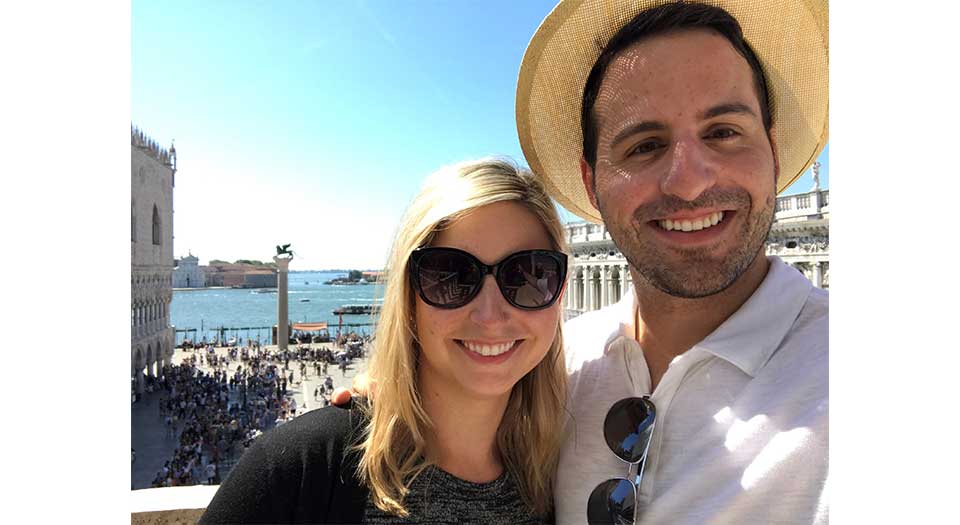Richard A. Crudo is a director in Sterne Kessler’s Electronics and Trial & Appellate Practice Groups. Recognized as “One to Watch” by Best Lawyers, Richard has more than a decade’s worth of experience litigating intellectual property (IP) cases. He has represented clients from a broad range of industries—including the computer software and hardware, medical device, biotech, financial services, and smartphone industries—in high-stakes cases before the Supreme Court, the Federal Circuit, and the district courts. Richard is particularly interested in helping clients navigate evolving patent and copyright issues surrounding cutting-edge artificial intelligence and machine learning technology.
While Richard focuses primarily on briefing and arguing appeals, his practice encompasses all stages of litigation, from pleadings and discovery to dispositive motion practice and trial. And, complementing his appellate and district court experience, Richard litigates post-grant proceedings on behalf of both petitioners and patent owners before the Patent Trial and Appeal Board (PTAB). In these proceedings, Richard has drafted petitions and other papers, taken and defended depositions, and argued at oral hearings.
In addition to his IP practice, Richard maintains a robust pro bono practice litigating cases involving flawed forensic technology. For example, he has worked on several state appellate amicus briefs seeking to overturn criminal convictions based on now-discredited forensic evidence. Richard also argued as amicus on behalf of law professors in the California Court of Appeals to reverse the dismissal of a constitutional challenge to Orange County, California’s “Spit and Acquit” DNA collection program.
Prior to joining the firm, Richard was a counsel in the IP litigation department of a major international law firm, focusing on district court, appellate, and PTAB litigation for large clients in many different industries. He also clerked for the Honorable Kathleen M. O’Malley of the U.S. Court of Appeals for the Federal Circuit. During law school, he served as senior managing editor of The George Washington Law Review and was a member of the Moot Court Board. And, before entering the legal profession, Richard interned for the U.S. Department of Energy’s Space and Defense Power Systems Office researching energy conversion technology for NASA spacecraft, and participated in NASA’s Space Grant Research Program.
Publications
- The Constitutionality of Criminalizing False Speech Made on Social Networking Sites in a Post-Alvarez, Social Media-Obsessed World, 31 Harv. J.L. & Tech. 65 (2017)
- Can Juries Decide Patent Eligibility Under 35 U.S.C. § 101?, 27 Fed. Cir. B.J. 45 (2017)
- Scandalous, Immoral and Disparaging Patents in Light of Tam, Law360 (Feb. 2016)
- A Look at Constitutional Challenges to Redskins Decision, Law360 (Sept. 2014)
- Estoppel as Applied to and from Patent Office Post-Grant Proceedings, 88 Pat. Trademark & Copyright J. (BNA) No. 1020 (2014)
- [Way]Back to the Future: Using the Wayback Machine in Patent Litigation, Landslide, Jan.-Feb. 2014, at 16
- A Patently Public Concern: Using Public Nuisance Law to Fix the False Patent Marking Statute After the Leahy-Smith America Invents Act, 80 Geo. Wash. L. Rev. 568 (2012)
- Metric Approach to Transformation Optics, 80 Phys. Rev. A 033824 (2009)
Representative Appeals
- Roku, Inc. v. Universal Electronics, Inc. (argued appeal resulting in vacatur of the PTAB’s non-obviousness ruling based on an erroneous construction of a critical claim term) (Fed. Cir. No. 23-1019)
- Weber, Inc. v. Provisur Technologies, Inc. (argued appeal resulting in vacatur of the PTAB’s non-obviousness ruling and reversal as to all three appealed issues, including the PTAB’s finding that the relevant prior art was not publicly accessible as of the relevant time period) (Fed. Cir. No. 2022-1751)
- Universal Electronics, Inc. v. Roku, Inc. (successfully defended PTAB’s obviousness ruling invalidating claims of three patents related to remote control devices for home entertainment systems) (Fed. Cir. No. 21-1992)
- Thompson v. Spitzer (argued appeal on behalf of law professors as amicus in support of challenge to the constitutionality of Orange County, California’s “Spit and Acquit” DNA collection program) (Cal. Ct. App. No. G060988)
- Boston Scientific v. Nevro Corp. (argued appeal involving spinal cord stimulation technology and obtained complete affirmance of the PTAB’s ruling invalidating all patent claims at issue as obvious) (Fed. Cir. No. 21-1777)
- WhitServe LLC v. Dropbox, Inc. (obtained affirmance of district court’s ruling invalidating Internet data backup patent as directed to unpatentable subject matter under 35 U.S.C. § 101) (Fed. Cir. No. 19-2334)*
- Intellectual Ventures I LLC v. Erie Indemnity Co. & Highmark, Inc. (obtained affirmance of ruling invalidating three Internet data-processing patents under § 101 and dismissing another patent based on lack of ownership) (W.D. Pa. Nos. 1:14-cv-00220, 2:14-cv-01131) (Fed. Cir. Nos. 16-1128, 17-1147)*
- Secured Mail Solutions LLC v. Universal Wilde, Inc. (obtained affirmance of district court’s ruling invalidating seven postal mail security patents under § 101) (Fed. Cir. No. 16-1728)*
- Pride Mobility Products Corp. v. Permobil, Inc. (successfully defended PTAB’s obviousness ruling invalidating most claims of two automated wheelchair patents) (Fed. Cir. No. 15-1585)*
- Arizona v. Jason Derek Krause (filed amicus brief on behalf of The Innocence Network resulting in vacatur of a manslaughter conviction based on discredited comparative bullet lead analysis) (Ct. App. Ariz. No. 1 CA-CR 14-0108)*
Representative District Court Proceedings
- HLFIP Holding, Inc. v. York County, Pennsylvania et al. (represented defendants in litigation involving postal mail contraband elimination patent, which resulted in all claims being held unpatentable under § 101, and successfully defended ruling on appeal) (M.D. Pa. No. 1:20-cv-00186; Fed. Cir. No. 22-1940)
- Proven Networks, LLC v. Palo Alto Networks, Inc. (represented defendant in multi-district litigation involving network security technology) (W.D. Tex. No. 6:21-cv-00369; MDL No. 2959)
- Memory Integrity, LLC v. Intel Corp. (obtained summary judgment ruling on behalf of defendant holding that patentee’s infringement claims were barred by a covenant not to sue) (D. Or. No. 3:15-cv-00262)*
Representative PTAB Proceedings
- Roku, Inc. v. Media Chain, LLC (filed six IPR petitions challenging all claims of electronic licensing patents, which resulted in early and favorable case resolution) (P.T.A.B. IPR2022-00389, -00390, -00391, -00392, -00393, -00394)
- Boston Scientific Corp. v. Nevro Corp. (successfully defended spinal cord stimulation patent claim against an IPR challenge, which contributed to favorable global settlement of all litigation) (P.T.A.B. IPR2020-01563)
- Bank of America, N.A. & PNC Financial Services Group, Inc. v. Intellectual Ventures I LLC (represented petitioners in CBM proceedings in which several finance and Internet-related patents were invalidated under § 101) (P.T.A.B. CBM2014-00028, -00029, -00030, -00031)*
- Atrium Medical Corp. v. Davol, Inc. (represented petitioner in IPR proceeding involving hernia patch technology) (P.T.A.B. IPR2013-00184, -00185, -00186, -00187, -00188,
-00189)*
* Prior Firm Experience
- Best Lawyers, “Best Lawyers: Ones to Watch® in America” (2025 – 2023)
- J.D., The George Washington University Law School, with honors
- M.S., Physics, University of Connecticut
- B.S., Physics, The University of Arizona, magna cum laude
- District of Columbia
- New York
- Supreme Court of the United States
- U.S. Court of Appeals for the Federal Circuit
- U.S. Court of Appeals for the Second Circuit
- U.S. Court of Appeals for the Fourth Circuit
- U.S. Court of Appeals for the Ninth Circuit
- U.S. District Court for the Southern District of New York
- United States Patent & Trademark Office
- Federal Circuit Bar Association
- Patent Trial and Appeal Board (PTAB) Association
The Honorable Kathleen M. O’Malley, U.S. Court of Appeals for the Federal Circuit

